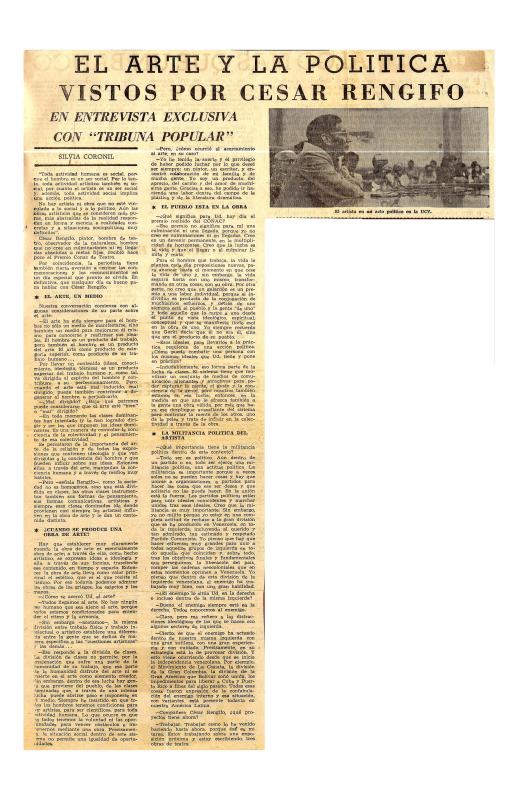In 1980 at the request of the GAN (Galería de Arte Nacional), Venezuelan-Portuguese psychologist, poet, professor, and writer Jorge Nunes (1942?2012) produced this book of interviews on Venezuelan César Rengifo (1915–80), which is one of his last and most complete testimonials. Although the author’s language is replete with poetic metaphors describing Rengifo’s work (with rather naïve and basic analysis), the work is still of historic and documentary interest for the breadth and depth of themes covered during five months of interviews. The interviewer not only captures the testimony of the artist, he also interprets and analyzes what is articulated, between questions, making invaluable revelations about Rengifo’s past. He also has the artist make predictions on the course of national art, expressing his political and social expectations in relation to it. In this sense and based on his experiences, the interviews compel Rengifo to critique his generation, and to reveal his stance as a political activist and his own vision of Venezuela’s historical-aesthetic evolution up to 1980. The affinity between the two adds a critical-analytical tone of great interest to the universe of multiple interpretations of Rengifo’s work and life.
For additional information on Rengifo, see the interview with the artist conducted by the Venezuelan journalist Silvia Coronil, “El arte y la política vistos por César Rengifo. En entrevista exclusiva con ‘Tribuna Popular’” (doc. no. 1172426), where Rengifo speaks of his winning the CONAC prize; as well as Irma Valero’s “César Rengifo: ‘No hay arte sin ideología’” (doc. no. 1141917).

